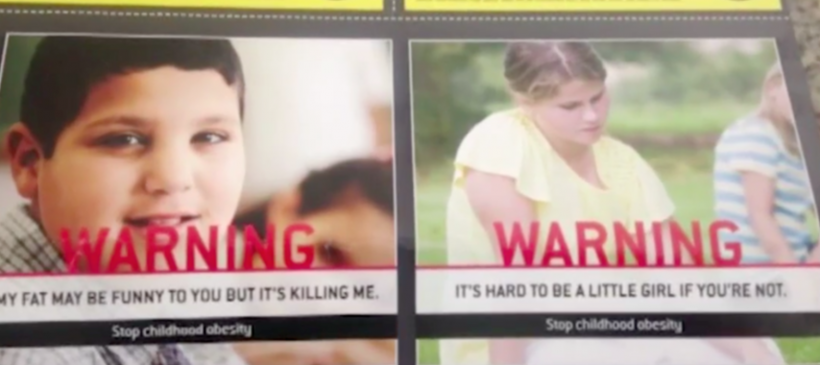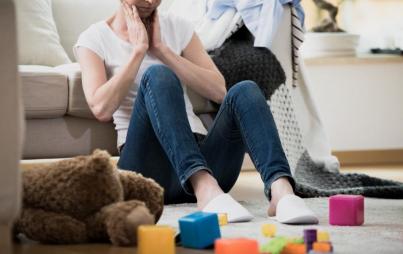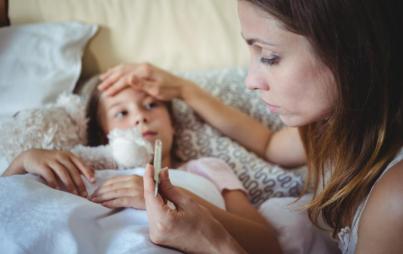
A lot of fatshaming nonsense happens around working out. There are people complaining that fat people have workout gear, and there was a Gold’s Gym franchise in Egypt that decided it would be a great idea to market using fat shaming and misogyny.
It couldn’t get worse, right?
Wrong.
A Gold’s Gym franchise in Kingwood, Texas said, “Hold my Michelob Ultra" and took up that challenge. They actually mailed out ads with pictures of two kids captioned, “My fat may be funny to you but it’s killing me,” and “It’s hard to be a little girl if you’re not.”
Are. You. Fucking. Kidding. Me. In case there are people who need to be told this (and there shouldn’t be) fat shaming kids is never, ever ok. And it does not lead to healthier kids. Convincing kids to hate their bodies doesn’t lead to them seeing those bodies as amazing and worthy of care.
According to American Academy of Pediatrics, in the last decade hospitalizations for eating disorders for kids under 12 are up 119%. Kids. Under. Twelve. Kids are plenty focused on their weight without getting a postcard from their local gym.
And if the gym is successful in getting them to try to manipulate their body size?
The outlook isn’t good. Research from the University of Minnesota: “None of the behaviors being used by adolescents (in 1999) for weight-control purposes predicted weight loss[ in 2006]…Of greater concern were the negative outcomes associated with dieting and the use of unhealthful weight-control behaviors.”
Considering that, let’s look at the captions real quick:
“My fat may be funny to you but it’s killing me.”
Could they have done any more to drive home the point that any kid who looks like this kid (or is larger) should hate their body? No. Just no. Also, a kid who assumes that everyone thinks their body is a joke is a victim of a society full of stigma, and they need to support — not encouragement to join in.
“It’s hard to be a little girl if you’re not.”
Being a little girl is not hard because this girl is a bit less little than some of her friends; it’s hard because she lives in a fatphobic world where her local gym mails out cards that fat shame kids. How much of the suffering of fat people would be immediately relieved by an end to discrimination? Especially since research is showing more and more that discrimination is correlated with the same health issues that are so often blamed on body size or behavior.
Thanks to the work of activists, Gold’s Kingwood branch — including the man responsible for this mess — apologized and promised to do better, saying:
“As a father and a person who is deeply committed to children’s health and wellness, I was devastated to learn that some people saw my ad as an attempt at body shaming…
Reflecting on your remarks helps me to realize that there are more positive ways to communicate my commitment about the programs we offer. Moving forward, I will be more thoughtful as to how we seek to move our message.”
Here’s hoping.
Luckily, it’s not that hard to do.
Access to nutritious foods and enjoyable movement options supports the health of all kids, so there is absolutely no reason in the world to stigmatize fat kids as part of a “health” message. In fact, it does a disservice to all kids, since it tells fat kids that healthy habits don’t support their bodies unless they make them thin (which is not true) as well as telling thin kids that they are “healthy” no matter what because they are thin (which is also untrue).
We should be clear with kids that health and body size are complicated, multi-faceted, not an obligation or barometer of worthiness, and not entirely within our control.
We should give them true information about things that will support their health, and we should make sure that they have access to foods that nurture them and safe movement options that they enjoy. That includes physical safety, but also psychological safety — every kid should be able to go to the gym, or the local pool, or anywhere, and not fear being shamed from their body (or anything else, for that matter).
Gold’s Gym, and anyone else who is interested, can help by creating a welcoming, inclusive environment for customers of all sizes and helping to give kids as many ways as possible to try out movement — competitive sports, non-competitive sports, individual activities, video games that involve physical movement, yoga, and more.
We can also work to make sure that all kids — and all adults, while we’re at it — learn to respect the diversity of body sizes that exist, and have the opportunity to appreciate their own amazing bodies. Let’s have gyms sending out mailers about that.








